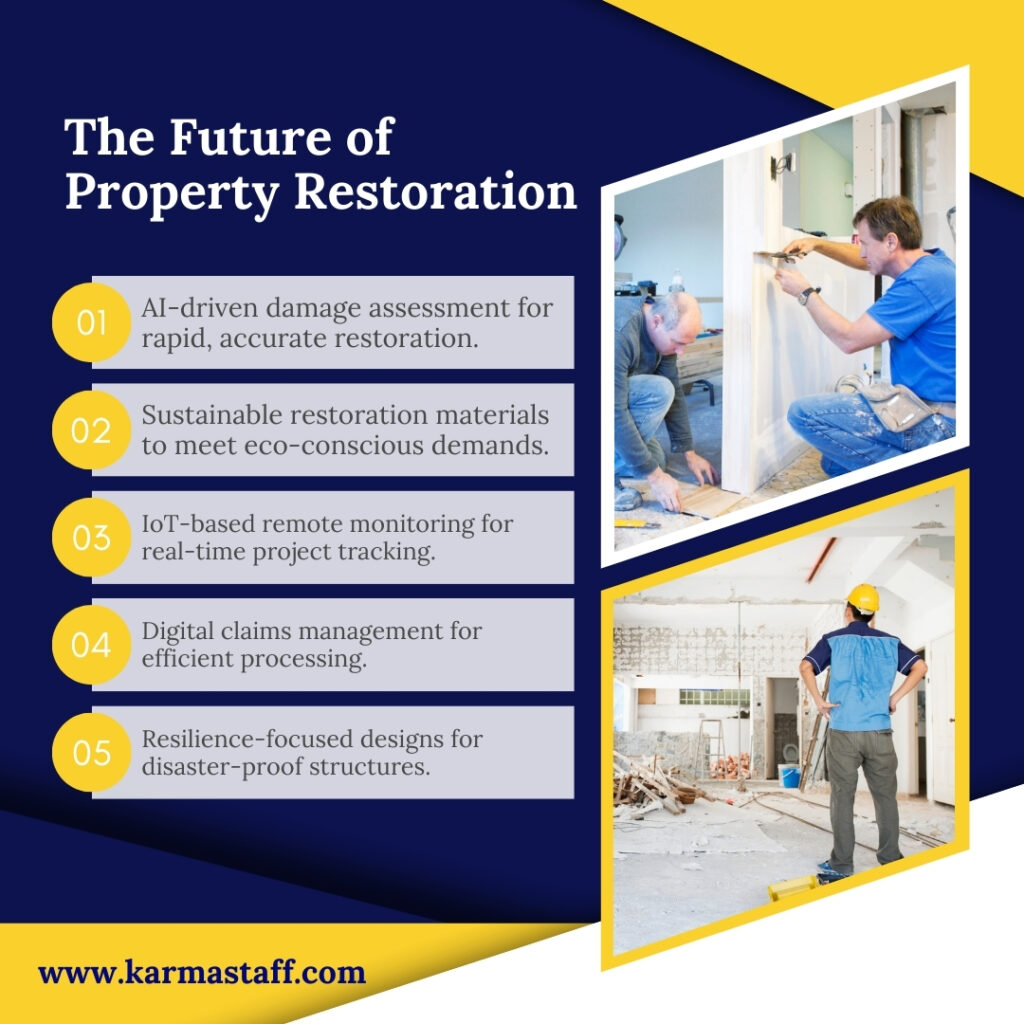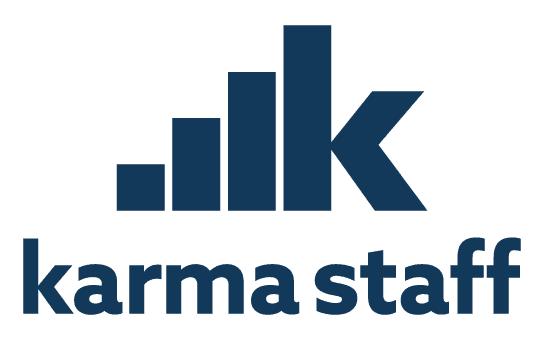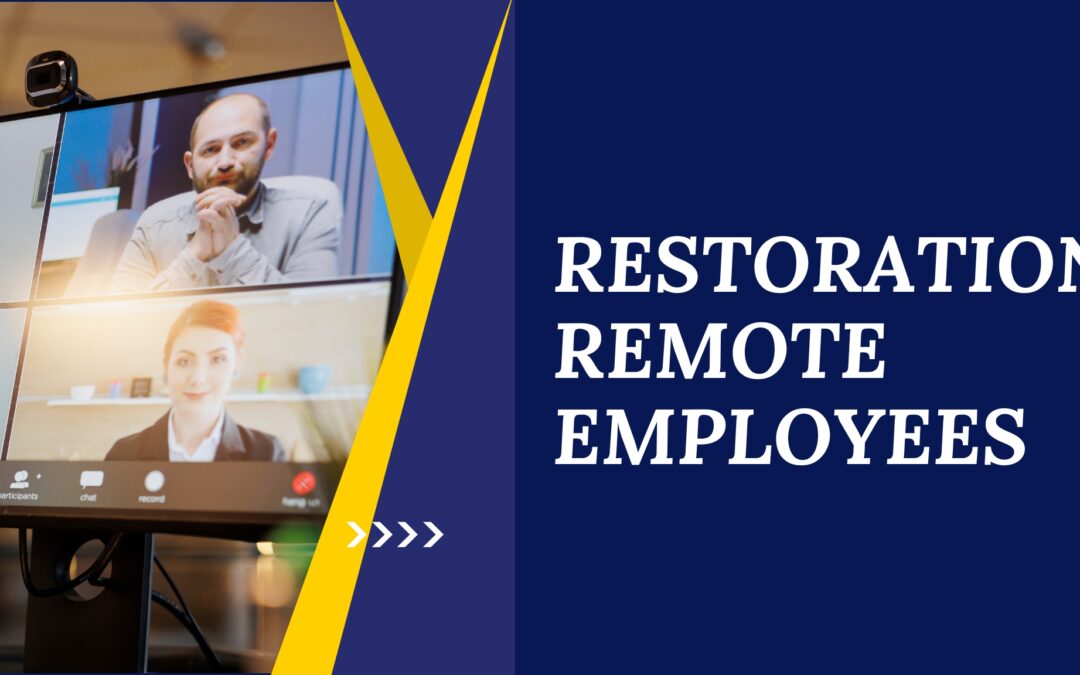Introduction
Remote work has seen a dramatic rise over the past few years, accelerated by advancements in technology and the global shift in work culture driven by the COVID-19 pandemic. According to a study by Upwork, by 2025, an estimated 36.2 million Americans will be working remotely, representing 22% of the workforce. This shift is not only reshaping traditional office-based roles but is also making significant inroads into industries such as property restoration services.
For property restoration companies, adapting to remote staffing can offer numerous benefits. By leveraging a remote workforce, these companies can access a broader talent pool, reduce operational costs, and enhance flexibility and scalability. As the industry evolves, effective remote team management becomes crucial for maintaining high service standards and operational efficiency.
Here are some key strategies to ensure your remote team in property restoration services operates smoothly and efficiently.
Clear Communication Channels
A remote team’s cornerstone is its ability to communicate effectively. For real-time communication, use tools like Zoom, Microsoft Teams, or Slack. Set up frequent video conferences to talk about ongoing tasks, resolve problems, and maintain team communication. To guarantee that everyone is on the same page and to eliminate misunderstandings, communication must be clear and precise. For example, set up a virtual meeting room where each team member can join regularly to discuss updates, address issues, and collaborate on projects. This dedicated space fosters an environment of continuous communication and teamwork.
Set Defined Goals and Expectations
Establish clear goals and expectations from the outset. Each person on the team needs to be aware of their own roles and the ways in which their efforts support the project as a whole. Leverage project management software such as Monday.com, Trello, or Asana to allocate work, create deadlines, and monitor progress.
Foster a Collaborative Culture
Encourage a culture of collaboration and teamwork. Implement cloud-based solutions, such as Microsoft Office 365 or Google Workspace, to enable team members to collaborate easily from any location. Foster an environment where team members feel comfortable sharing ideas, asking questions, and offering solutions. For example, start each day with a team meeting where everyone updates each other on their current projects and discusses any areas where they need help. This routine not only keeps everyone informed but also encourages mutual support and collaboration, ensuring that team members can leverage each other’s strengths to overcome challenges and achieve common goals.
Invest in the Right Technology
Equipping your team with the right technology is crucial. Ensure they have reliable internet connections, up-to-date software, and necessary hardware. Invest in industry-specific tools like restoration management software, which can streamline workflows, improve efficiency, and enhance communication within the team.

Regular Training and Development
Continuous learning is vital in the dynamic field of property restoration services. Provide regular training sessions and access to educational resources to keep your team updated on the latest techniques, technologies, and industry standards. This enhances their confidence and sense of fulfillment in their work in addition to improving their talents. For example, host a watch party where team members can view webinars or training videos together, followed by a group discussion to share insights and address any questions. This interactive approach promotes learning and fosters a sense of community within the team.
Monitor Performance and Provide Feedback
Regularly monitor the performance of your remote team members and provide constructive feedback. Use key performance indicators (KPIs) to measure their progress and identify areas for improvement. Constructive feedback helps employees grow and contributes to the overall success of the team. For example, conduct monthly performance reviews to evaluate each team member’s achievements, discuss any challenges, and set goals for the upcoming month. This regular check-in process ensures continuous improvement and keeps everyone aligned with the team’s objectives.
Maintain Work-Life Balance
Working remotely might make it more difficult to distinguish between business and personal life. Encourage your team to maintain a healthy work-life balance by setting boundaries and respecting their off-hours. Promote practices such as regular breaks, physical activity, and time off to prevent burnout and maintain productivity.
Encourage a Strong Team Connection
Building strong relationships within a remote team can be challenging but is essential for cohesion and morale. To strengthen bonds, organize social events and virtual team-building activities. Celebrating achievements and milestones collectively can also enhance team spirit and motivation.
Adaptability and Flexibility
The property restoration industry can be unpredictable, and remote teams must be adaptable and flexible. Encourage a mindset of resilience and innovation. Being open to change and ready to adapt to new circumstances ensures your team can handle challenges effectively.
Secure Data Management
In property restoration services, handling sensitive client information securely is paramount. Implement robust cybersecurity measures to protect data. Use secure communication channels, regularly update software, and educate your team about best practices in data security.
Conclusion
Managing a remote team in property restoration services requires a strategic approach that emphasizes clear communication, collaboration, and continuous improvement. By implementing these strategies, you can build a cohesive, productive, and motivated remote team capable of delivering high-quality property restoration services.
Whether you’re a seasoned manager or new to the world of remote teams, these tips can help you navigate the complexities of managing a remote workforce and ensure your property restoration services are top-notch.
At Karma Staff, we have effectively embraced remote work by integrating advanced communication tools, fostering a collaborative culture, and ensuring continuous training and development. Our commitment to clear communication, regular feedback, and secure data management allows us to maintain high service standards and deliver exceptional staffing services to property restoration companies. By leveraging these strategies, Karma Staff ensures that our remote team operates efficiently, remains motivated, and continues to meet the dynamic needs of the property restoration industry.






